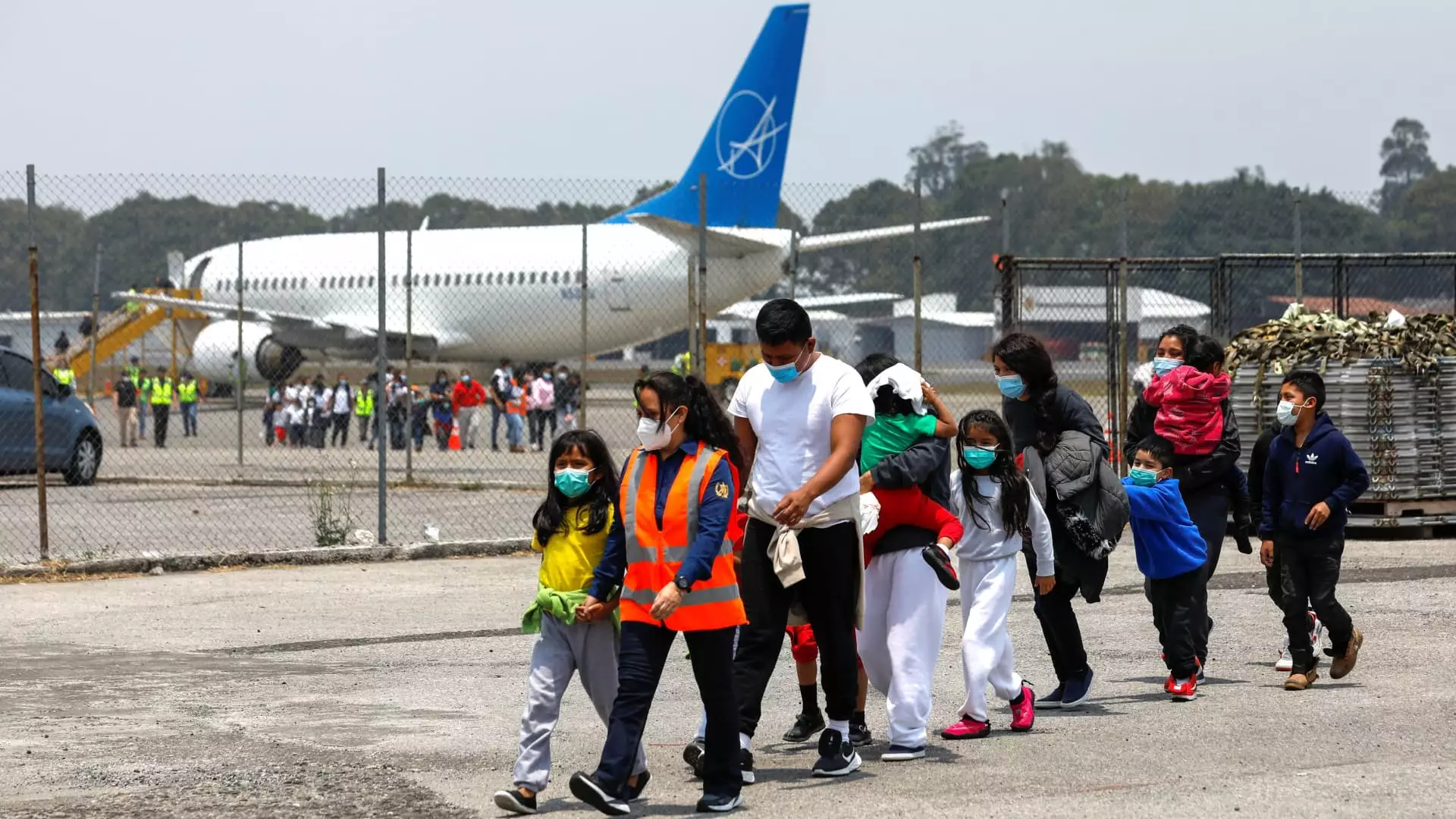The recent ruling by U.S. District Judge Brian Murphy reveals a deeply troubling reality within the American immigration system, where the safety of marginalized individuals, specifically members of the LGBTQ+ community, is systemically overlooked. Murphy’s order for the Trump administration to facilitate the return of O.C.G., a gay Guatemalan man wrongfully deported to Mexico—where he faced the specter of persecution—highlights both a tragic misjudgment and a broader pattern of governmental mismanagement. The implications of this ruling extend far beyond the individual case; they point to a systematic failure that jeopardizes the lives of those fleeing persecution.
In an age where one might think that due process and the assurance of safety are fundamental rights enshrined within the Constitution, the reality paints a different picture. Judge Murphy labeled the situation a “horror,” underscoring the absurdity of a system that can truncate the lives of those most in need of protection. O.C.G.’s plight resonates as an example of how the U.S. immigration policies, especially during the Trump administration, have created an environment fraught with danger and injustice for vulnerable populations.
When Justice Becomes an Afterthought
The Justice Department’s admission of an error in O.C.G.’s case is not merely a bureaucratic mishap; it is emblematic of a larger culture of negligence within immigration enforcement. The notion that officials did not properly inquire into the safety concerns of this man, who had already endured horrific experiences in Mexico, is a damning indictment of how far the system has deteriorated. The casual dismissal of his fears stands in stark contrast to the foundational principle that the United States is a haven for those seeking refuge from violence and persecution.
O.C.G.’s experience—fleeing death threats in Guatemala, only to be met with indifference—or worse—in the U.S. highlights an unsettling precedent. The legal framework designed to protect individuals fleeing violence seems insufficient when weighed against the harsh realities of enforcement. Judge Murphy’s insistence that “one either receives what the Constitution requires, or one does not” raises profound questions about the integrity of an immigration system that repeatedly fails those it professes to serve.
The Broader Consequences for Vulnerable Populations
But O.C.G.’s story is not an isolated incident. The case of Kilmar Abrego Garcia, who was wrongfully deported to El Salvador despite existing protections, serves as a sobering reminder that countless others remain ensnared in this web of bureaucratic failures. This cascade of errors reinforces the notion that the immigration system, particularly under a hardline agenda, often prioritizes swift deportation over due process—a reality with dire implications for individuals whose lives hang in the balance.
For many LGBTQ+ immigrants, the stakes could not be higher. The combination of worsening social stigmas and hostile political climates creates an environment where deportation to their home countries is tantamount to a death sentence. Murphy’s ruling, though a necessary correction of a grievous error, raises uncomfortable questions about the future of immigration policy in the U.S. It calls for a reexamination of systemic issues that perpetuate such injustices.
Rallying for Change Amid Stagnation
The legal team for O.C.G. expressed their elation at the decision but must now confront the arduous journey of returning their client safely to the U.S. This endeavor is monumental given that O.C.G. was put into an untenable position upon his deportation, forced to either endure a lengthy asylum process in a hostile environment or return to the very country from which he fled. The limiting options available to O.C.G. underscore the flaws and potential dangers embedded within the refugee application process.
As advocates rally around cases like O.C.G.’s, it becomes crucial to demand not just individual justice but robust reforms that address the underlying issues plaguing the immigration system. The U.S. must recalibrate its approach, ensuring that it upholds its professed ideals of safety, dignity, and justice for all individuals, particularly those who are the most vulnerable among us. Only through a reevaluation of our immigration policies can we hope to prevent more cases that echo the horror illustrated by O.C.G.’s experience.



Leave a Reply